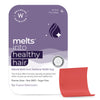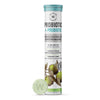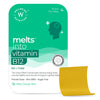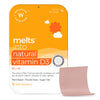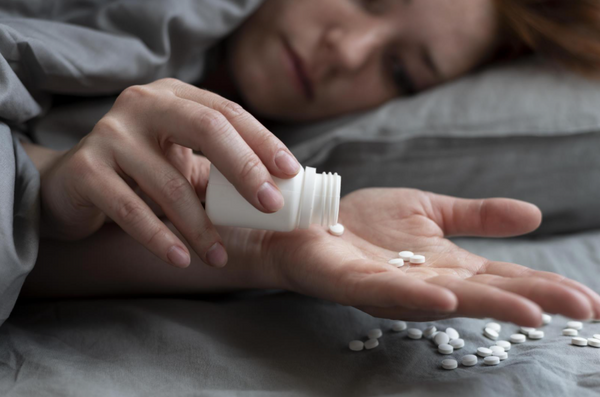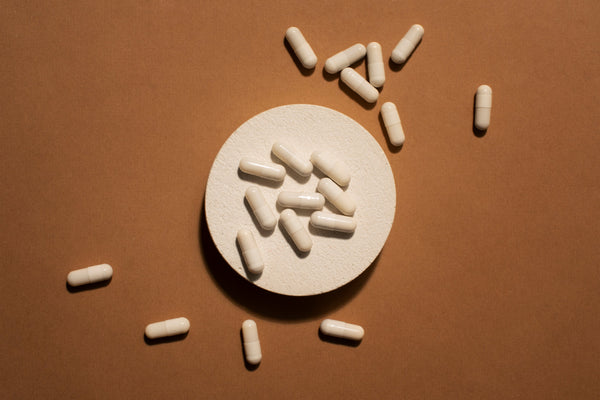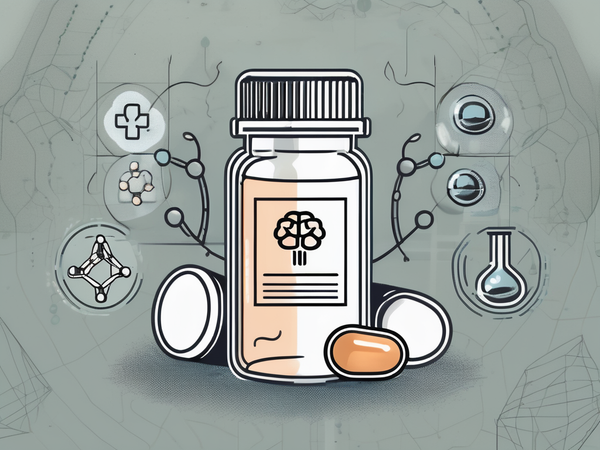In a world where every food stand seems to resemble a "sugar factory" and restaurants hide sugar as a 'hidden ingredient', awareness about the health risks associated with this pervasive substance is on the rise. Sugar has emerged as the primary culprit behind numerous diseases linked to unhealthy diets. Despite this growing awareness, breaking free from the sugar trap can be challenging, particularly for those with a sweet tooth. Sugar cravings can be triggered by stress, hunger, or simply the sight of tempting food. The consequences of excessive sugar consumption extend beyond the body, impacting the brain significantly as glucose serves as its primary source of fuel. In this article, we delve into the effects of sugar on the brain, explore strategies for overcoming sugar addiction, and examine the potential role of organic supplements in this process.
Impact of Sugar on the Brain
While the brain accounts for only 2% of body weight, it requires around 20% of the body's energy, which may be even higher for growing children. Glucose, a basic form of carbohydrate-rich food, is the primary energy source for neurons and nerve cells in the brain. Sugar is necessary for neurotransmitter production, which facilitates communication between these cells. Imbalances in importantneurotransmitters at different stages of brain development can lead to conditions affecting learning, mood, and behavior. Inadequate sugar intake can impair intercellular communication, resulting in cognitive decline.
However, the health hazards caused by excessive sugar consumption outweigh these incidences. Overconsumption of sugar can decrease the production of Brain-Derived Neurotrophic Factors (BDNF), affecting growth, development, and communication between nerve cells. This impact on BDNF is associated with brain degenerative disorders like Alzheimer's, dementia, and depression. High sugar consumption can also cause hyperactivity and mood swings.
Role of Nutrients in Brain Function
Vitamins support bone health, wound healing, nutrient absorption, energy utilization, and overall body function. Humans need to obtain vitamins from external sources like food and natural supplements, as they cannot produce them internally.
There are two types of vitamins: water-soluble and fat-soluble. Water-soluble vitamins, such as vitamin B complex and vitamin C, are found in fruits, vegetables, and grains. They are readily absorbed into the bloodstream. These vitamins are essential for the synthesis of neurotransmitters in the brain, the production and regulation of serotonin and dopamine, and even helping support energy supply, which is crucial for mental alertness.
Fat-soluble vitamins, found in nuts, seafood, dairy, butter, and oil, pass through the stomach and travel to the intestines, where bile salts are released to break them down and aid in their absorption. Water-soluble vitamins are easily excreted through urine when the kidney filters out blood, so they need to be replenished daily. Fat-soluble vitamins are generally well stored inside the liver, so excess consumption of these could also lead to toxicity. These vitamins are known to protect cells, including brain cells, from oxidative damage caused by free radicals, boost cognition function, and even reduce the risk of mood disorders.
Sugar consumption can impact nutrient absorption and contribute to a decline in mental health through various mechanisms, including:
-
Nutrient Competition:
High sugar intake can displace nutrient-rich foods from the diet. Consuming excessively sugary foods and beverages may lead to a reduced intake of nutrient-dense foods such as fruits, vegetables, whole grains, and lean proteins. This can result in deficiencies in essential vitamins, minerals, and other nutrients crucial for brain health and mental well-being.
-
Impaired Nutrient Absorption:
High sugar intake, especially from refined sugars and sugary beverages, can affect the absorption of certain water-soluble vitamins and minerals. These minerals play vital roles in brain function and mood regulation.
-
Blood Sugar Fluctuations:
High sugar consumption causes rapid spikes and subsequent crashes in blood sugar levels. These fluctuations can lead to mood swings, irritability, and increased feelings of anxiety or depression.
Effects of Sugar on Mental Health
The relationship between sugar intake and mental health is complex. While sugar can provide a quick burst of energy and temporarily improve mood, excessive consumption may have negative effects on mental well-being, some of which include:
1. Mood swings
Consuming sugary foods or beverages can lead to rapid spikes and subsequent crashes in blood sugar levels, which may contribute to mood swings and irritability.
2. Depression and anxiety
Some studies have found associations between high sugar intake and an increased risk of depression and anxiety. It is believed that sugar's impact on neurotransmitters and inflammation in the brain may play a role.
3. Cognitive function
High-sugar diets have been linked to impaired cognitive function, including difficulties with memory and learning. This may be due to chronic inflammation and insulin resistance, which can affect brain health.
4. Addiction-like effects
Sugar can trigger the release of dopamine, the "feel-good" neurotransmitter in the brain. Some research suggests that overconsumption of sugar can lead to dopamine desensitization, similar to how drug abuse can cause addiction.
5. Stress response
Chronic consumption of sugary foods may contribute to an exaggerated stress response, as high sugar levels can affect the hypothalamic-pituitary-adrenal (HPA) axis, which regulates stress hormones like cortisol.
6. Imbalance in hormones
Excess sugar can also impair your hormones like testosterone and melatonin, both of which have an impact on your mental health.
Testosterone: Testosterone, predominantly a male hormone, sees a drop in excess glucose intake. A deficiency in testosterone may lead to mood swings, depression, anxiety, fatigue, and decreased libido. Taking testosterone booster supplements along with a restriction in sugar intake can help improve the balance of hormones, improving sexual and mental health.
Melatonin: Too much sugar at bedtime can also disturb your sleep. That's because sugar inhibits the production of melatonin. If you have been tossing and turning at night, maybe it's your excess sugar intake to blame. Along with sugar reduction, you may add melatonin supplements to get a sound sleep.
Having medical conditions that lead to nutrient malabsorption, like IBS, Celiac disease, or Crohn’s disease, can further worsen the situation, causing extreme vitamin and mineral deficiencies. In such scenarios, taking gut health supplements such as prebiotic and probiotic supplements or apple cider vinegar can help you maintain good gut health while promoting nutrient absorption.
How to Break the Sweet Cycle
Eating a small piece of chocolate, cake, or pastry makes you want some more? You are not the only one. Sugary foods have that kind of effect on almost all people. When we eat sugar, the taste receptors on our tongue send a signal to the brain to release dopamine. Our experience of pleasure and happiness is mostly brought on by this hormone. Dopamine is also released during activities such as drinking alcohol, exercising, or playing your favorite sports. Alcohol, nicotine, and heroin send dopamine into overdrive, leading to addiction. Sugar consumption has a similar effect, but with slightly less intensity. To break free from this sugar addiction cycle, try these tips:
-
Portion control: Practice mindful selection of the amount of sugar you consume in the day through various sources, from plain sugar to hidden ones in packaged and processed foods.
-
Know your source: Read nutrition labels; detect and prevent mindless sugar consumption. A food packet is considered high in sugar if sugar is listed in the first three ingredients of the product.
-
Swap with naturals: Let your sweet tooth be satisfied with natural foods containing fiber and other nutrients like fruits, dates, jaggery, etc. in moderate amounts.
-
Drink plenty of water: Let your fluid source of food be only water instead of sugar-laden fruit juices, soft drinks, cold drinks, cocktails, or mocktails. Ditch that unnecessary sugar overload.
-
Swap with artificial sweeteners: Some FDA-approved artificial sweeteners like aspartame, saccharin, sucralose, neotame, acesulfame-k, stevia, advantage, and monk fruit extract may work as sugar replacements to provide sweetness without adding extra calories.
-
Take help from sugar-free supplements: You can choose natural supplements or organic health products rich in water-soluble vitamins and vital minerals containing artificial sweeteners. You may be able to ensure a daily intake of essential nutrients by including vitamin B12 supplements, vitamin D3 supplements, and biotin supplements. Very often, vegetarians tend to lack vitamins B12 and D3 in their diet, as they are most abundantly present in animal products. They can opt for plant-based supplements in that case.
Wrapping Up
A sweet start may not always have a sweet ending. Too much sugar intake may have many negative implications. Breaking the sugar addiction may be difficult but extremely crucial at the same time. Make use of the above tips to reduce your overall sugar intake. You may also add sugar-free supplements to your daily diet, which will not just satisfy your sweet cravings but also help you fill in the nutritional gaps, if any.
References
http://www.dining.ucla.edu/housing_site/dining/SNAC_pdf/ComplexityOfCarbs.pdf
https://unitedbrainassociation.org/2020/06/28/how-sugar-affects-the-brain/
https://theconversation.com/your-brain-on-sugar-what-the-science-actually-says-126581
https://www.thepaleomom.com/fructose-and-vitamin-d-deficiency-the-perfect-storm/#:~:text=Researchers%20have%20discovered%20that%20when,more%20active%2C%20while%20another%20enzyme%2C









